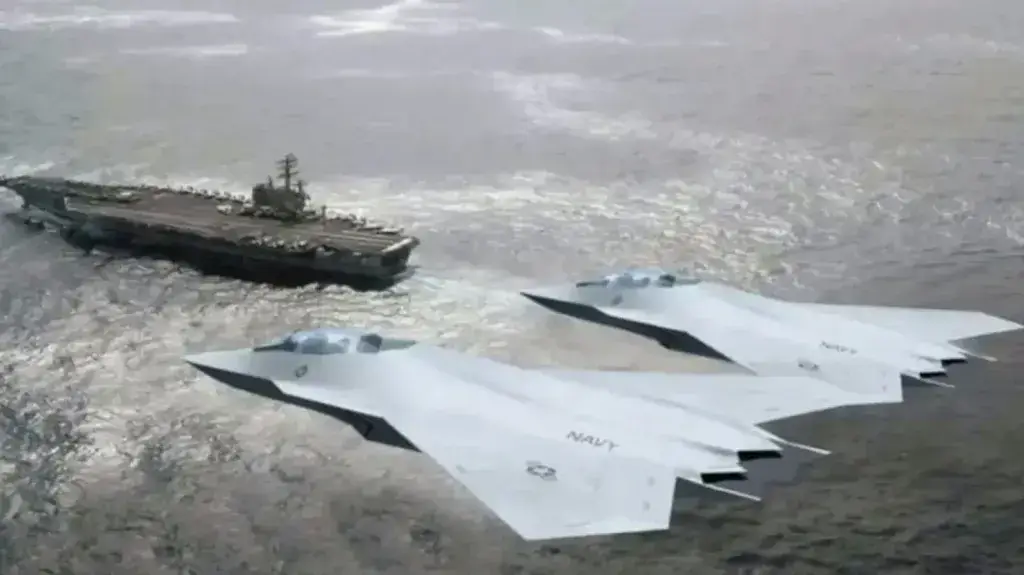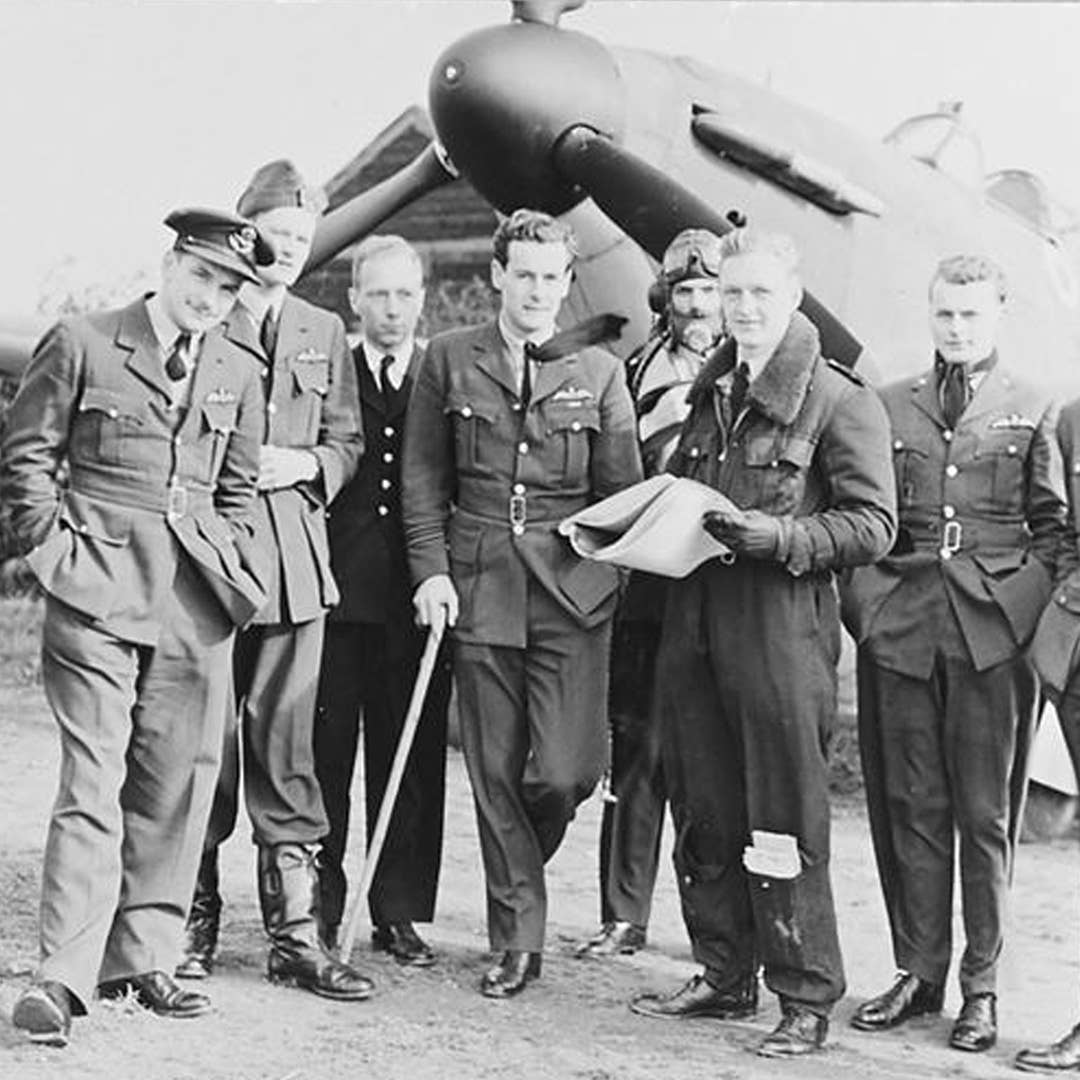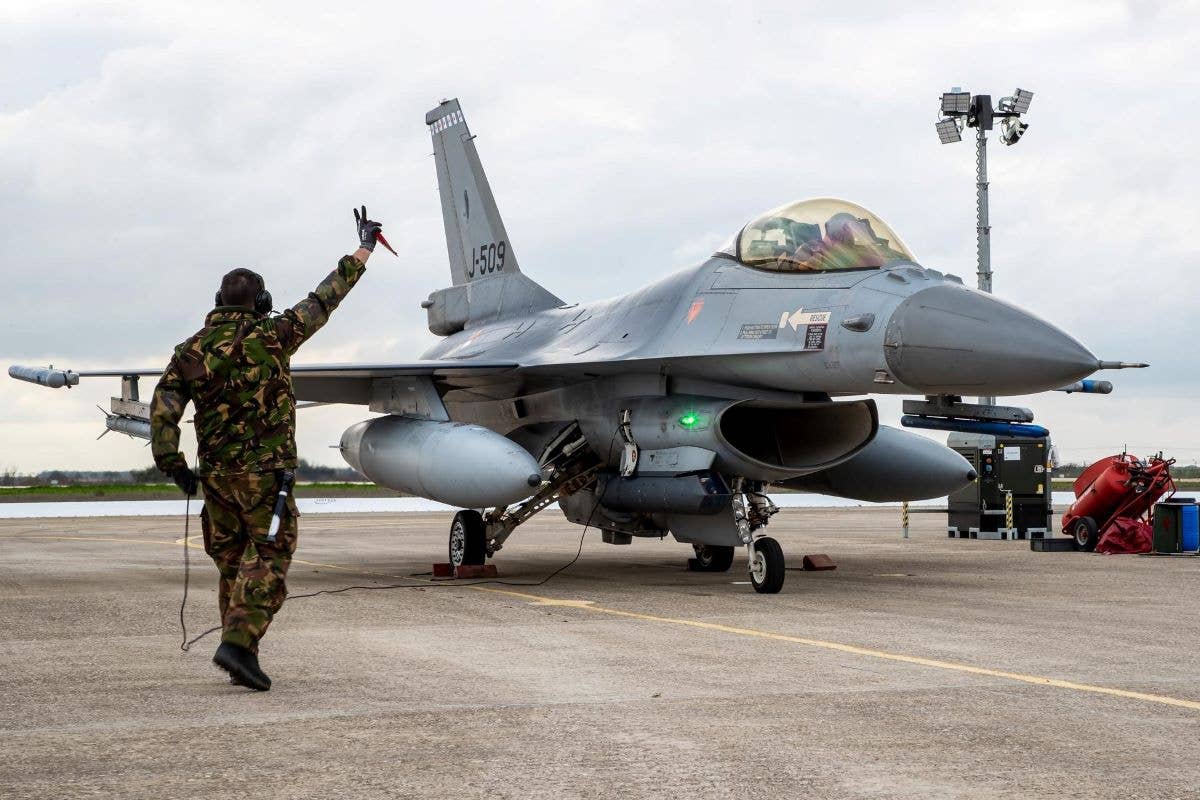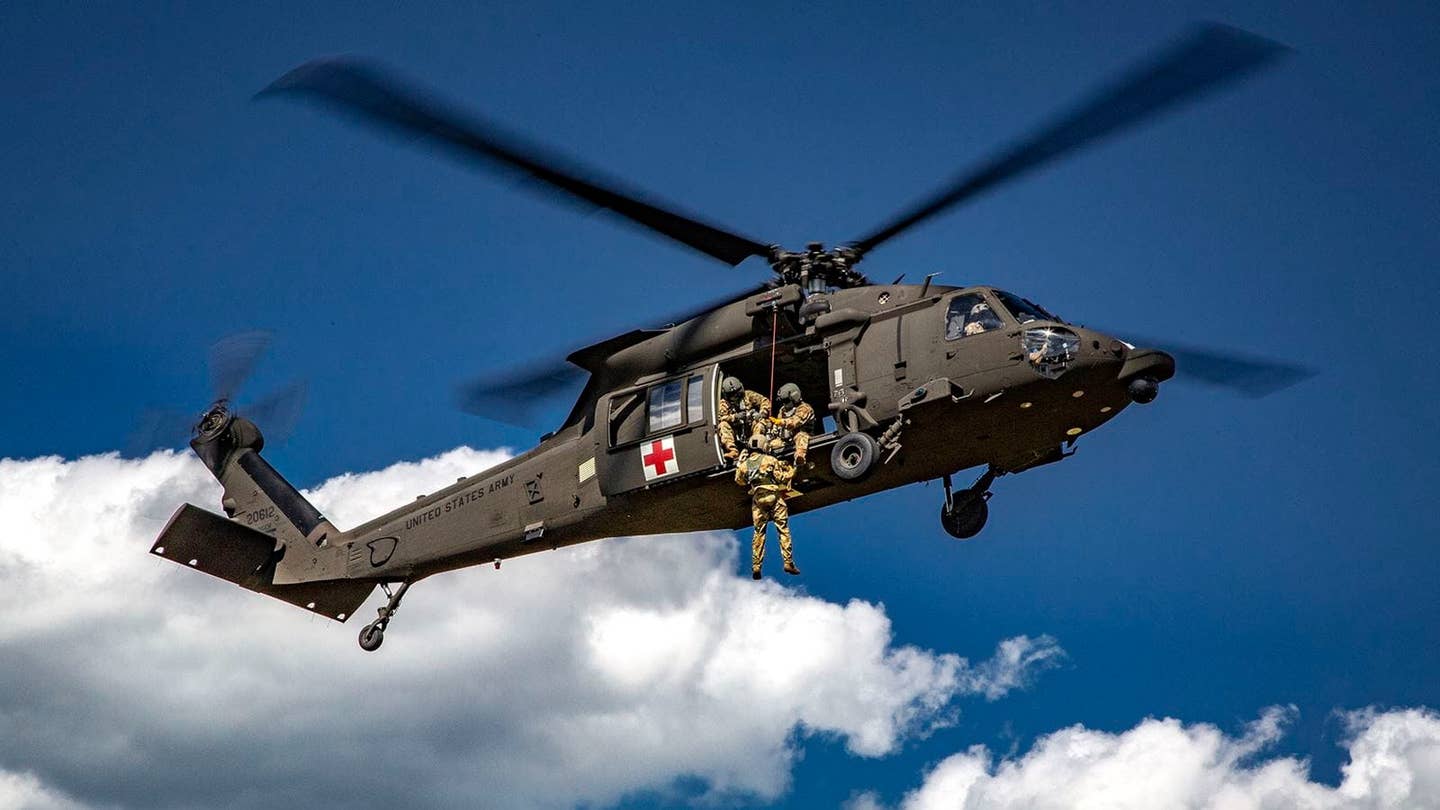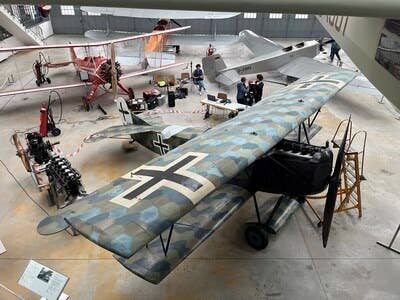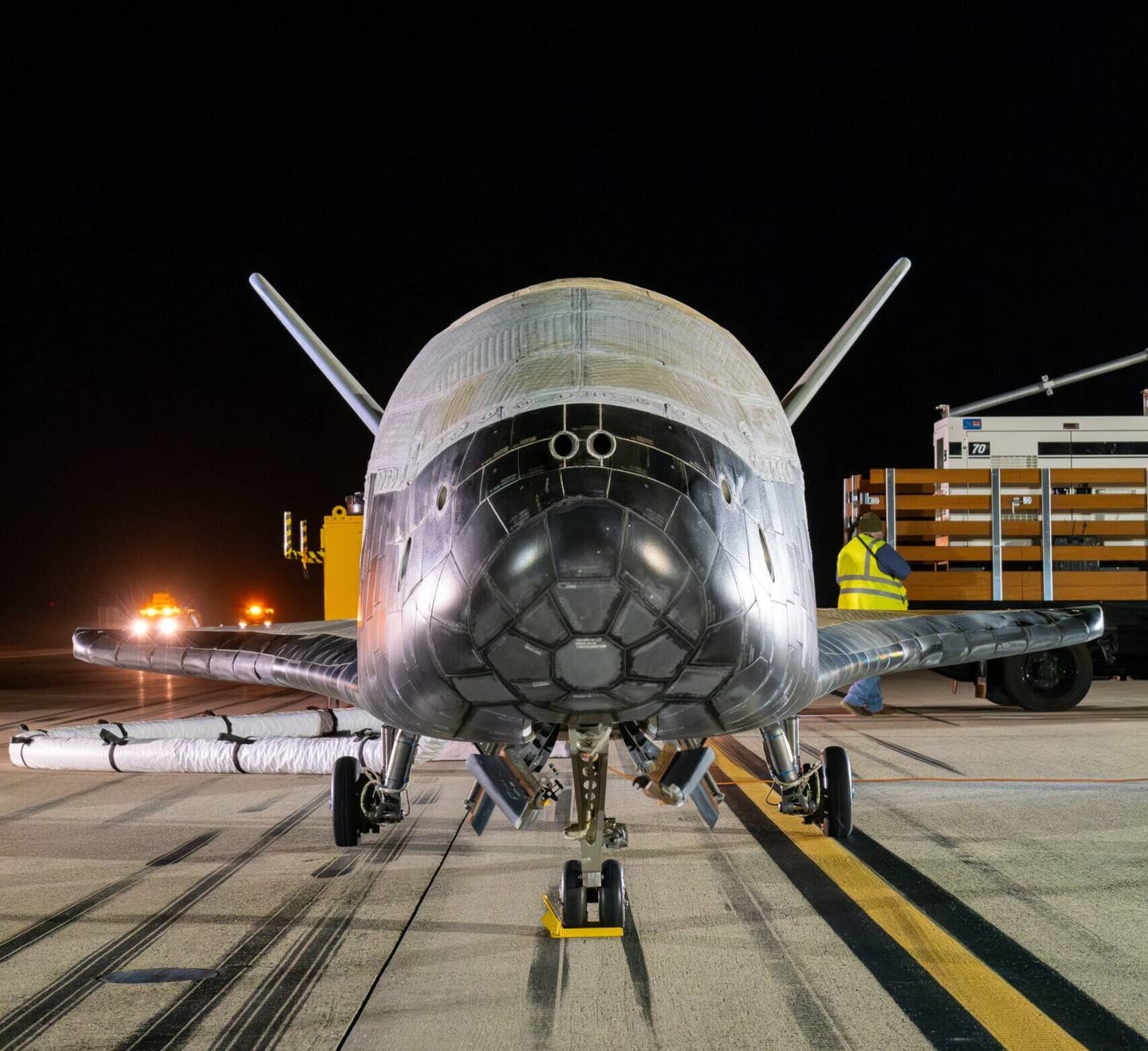Navy Deploys Flexrotor UAVs for ISR in Gulf of Oman
The uncrewed aerial vehicles were used during patrols to track Iranian Navy and Islamic Revolutionary Guard Corps Navy ships, the U.S. Navy said.
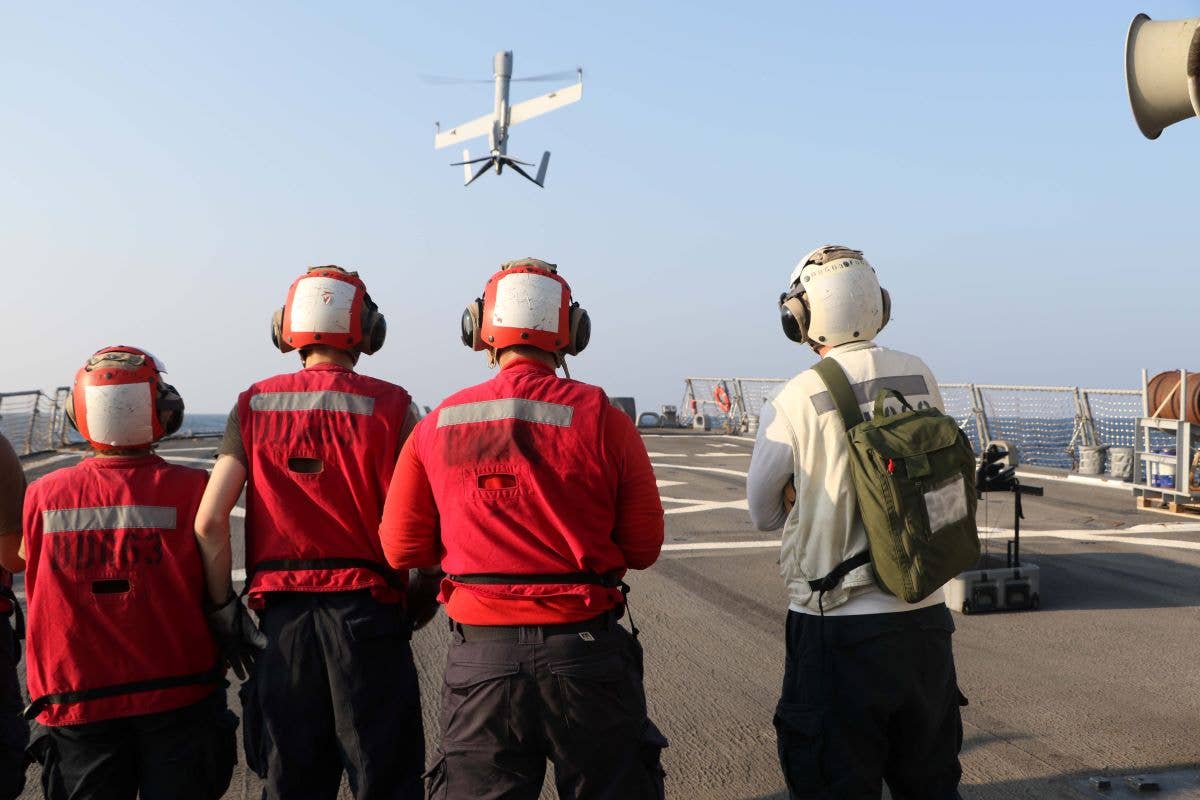
A Flexrotor unmanned aerial vehicle hovers over the flight deck of the Arleigh Burke-class, guided-missile destroyer USS Stethem (DDG 63) during UAV operations in the Gulf of Oman on November 9. The Stethem is deployed to the U.S. 5th Fleet area of operations to help ensure maritime security and stability in the Middle East region. [Courtesy: U.S. Central Command]
U.S. Navy sailors deployed in the Gulf of Oman turned to uncrewed aerial vehicles (UAV) to increase maritime domain awareness during a recent operation that included tracking Iranian Navy and Islamic Revolutionary Guard Corps Navy ships.
During the November 8-9 event, sailors aboard the USS Stethem—an Arleigh Burke-class, guided-missile destroyer—used small Aerovel Flexrotor tactical UAVs to "put more eyes in the sky" for intelligence, surveillance, and reconnaissance (ISR), U.S. Naval Forces Central Command said Tuesday.
The Flexrotor UAVs are able to operate for more than 30 hours, have a 120-kilometer communications range, and are capable of vertical takeoff and landing during both day or night operations.
The drones are well suited for ISR at sea, according to Captain Colin Corridan, commodore of the U.S. Naval Forces Central Command’s Task Force 59.
According to the command, the UAVs proved vital when integrated with a dozen different uncrewed platforms for manned-unmanned teaming during a recent operation where Iranian Navy and Islamic Revolutionary Guard Corps Navy (IRGCN) vessels were tracked during patrols around the Strait of Hormuz.
“The ISR capabilities of these UAVs greatly expand our sight picture and help us better monitor what’s happening in the region," Corridan said. “The sailors aboard Stethem and from Task Force 59 are strengthening maritime security and stability through the use of Flexrotor, deterring malign activity by bad-faith actors. As these capabilities expand, we’re going to be able to gain more information more quickly to be able to make faster, smarter decisions.”

Sign-up for newsletters & special offers!
Get the latest FLYING stories & special offers delivered directly to your inbox

